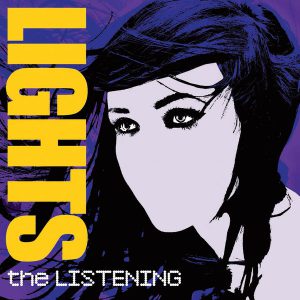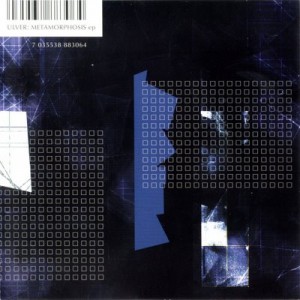Lights The Listening Review
General Information:
Artist: Lights
Album: The Listening
Genre(s): Electronic
Subgenres(s): Synthpop
Released: 2009
Length: 43 minutes
Language(s): English
Label(s): Universal Music, Sire Records
Track List:
01. Saviour
02. Drive My Soul
03. River
04. The Listening
05. Ice
06. Pretend
07. The Last Thing on Your Mind
08. Second Go
09. February Air
10. Face Up
11. Lions
12. Quiet
13. Pretend (Reprise)
Lights The Listening Review
The Listening is the debut album of Canadian synthpop solo artist Lights. It is a low key outing that puts her voice, which is so sickly sweet that it could give you diabetes, at the front and centre of each song. This isn’t inherently a bad thing but the music itself can feel secondary at times and this approach leads itself into a by-the-numbers result when looking at this in the context of a full album.
Saviour introduces the listener to The Listening and sets the tone nicely while also making use of auto-tune software that isn’t necessary because Lights has a voice that should be able to stand on its own merits. It is also prominent on the title song and its use might simply be a by-product of the pop trend for auto-tuning voices that arose in the mid to late 2000s. All but two songs are under three and a half minutes long so their shortness will lend itself to a good amount of replay value on individual songs rather than as a whole album.
Both Pretend and The Last Thing on Your Mind take on a downbeat mood and feature an acoustic guitar which adds to the sincerity of the performance with the latter breaking out of the mould further by having a distorted guitar playing in the crescendo to the finale. This also has Lights singing far more intensely over a comparatively rapid paced beat and makes it a standout moment for the album. Being placed in the middle of the album, it is a good way to break up the pacing although it would have made for a better closing song.
Lights sounds rabid in her choppy delivery of the second verse of Ice and combined with the frantic synthesiser part that follows it, it quickly becomes a stand out moment like Pretend (Reprise), a reimagining of Pretend as a piano ballad that strips away all of the polish associated with the synthpop sound and gives a glimpse into another side to Lights.
Many listeners will undoubtedly be won over by Lights’ voice alone but since The Listening has Lights and her co-producers working within certain parameters and only ever tip-toe across the line, which is what yields some of their best results, it shows that there is room for growth.
Performers:
Lights: Vocals, production (all tracks)
Thomas Salter: Production (tracks 1–3, 5, 6, 10, 11, 14, 15)
Dave Thomson: Production (tracks 4, 7–9, 12, 16)
The Angry Kids: Additional production (track 15)
External Links:
Lights Homepage
Lights on Wikipedia
The Listening on Wikipedia



